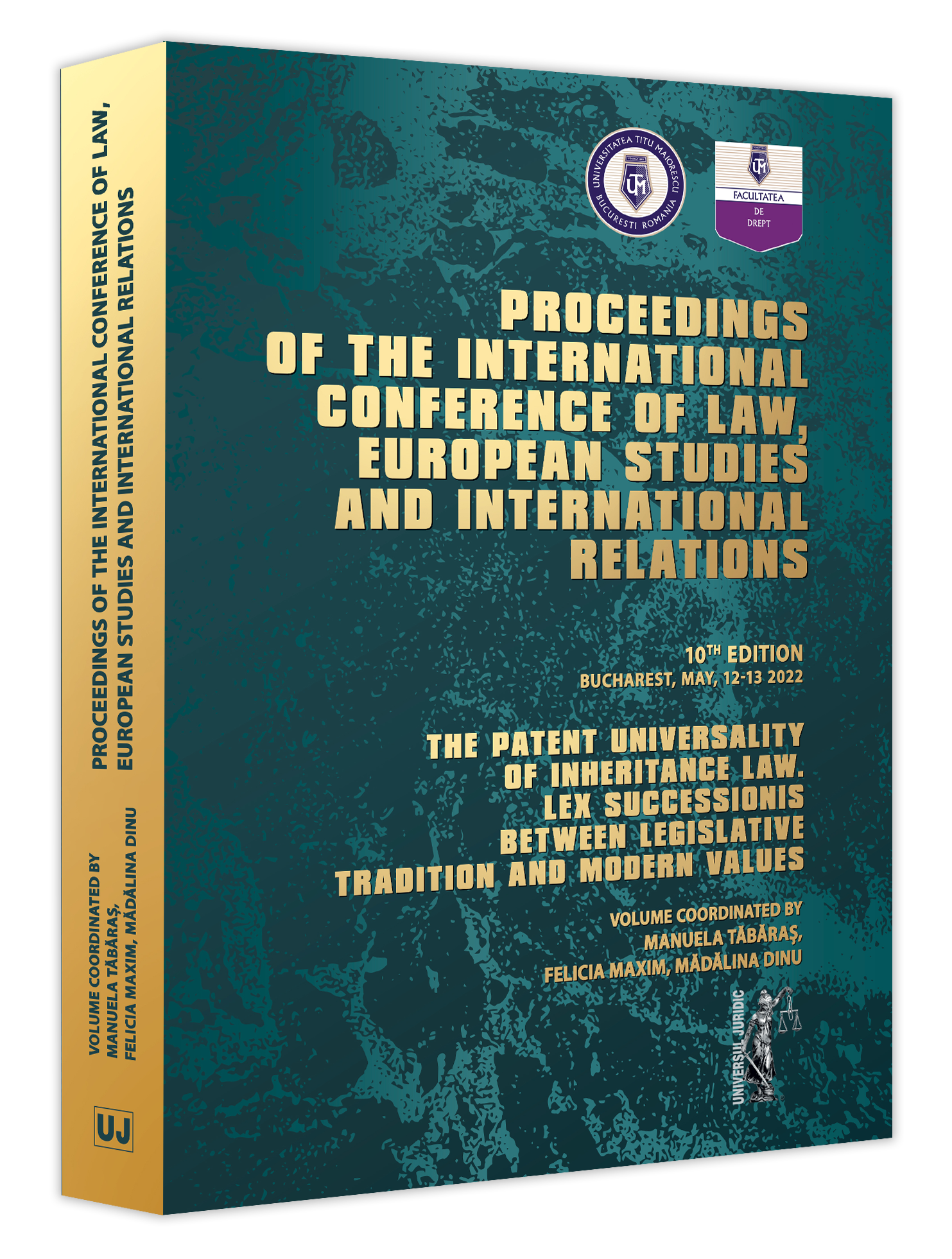THE LEGAL STATUS OF THE HUMAN EMBRYO. TIME OF CONCEPTION AND TIME OF ACQUIRING PERSONHOOD IN MEDICALLY ASSISTED REPRODUCTION
THE LEGAL STATUS OF THE HUMAN EMBRYO. TIME OF CONCEPTION AND TIME OF ACQUIRING PERSONHOOD IN MEDICALLY ASSISTED REPRODUCTION
Author(s): Nicoleta-Ramona PredescuSubject(s): Law, Constitution, Jurisprudence, Constitutional Law, Civil Law, Human Rights and Humanitarian Law, Health and medicine and law, EU-Legislation
Published by: Editura Hamangiu S.R.L.
Keywords: the legal status of the human embryo; personhood; time of conception; the legal time of conception; civil capacity; assisted reproductive technologies;
Summary/Abstract: If we did an imagination exercise and imagined a „person”, how would that person look like? Would it be an adult human being of discernment? A minor with limited capacity for exercising their rights and assuming civil obligations? A child or a new-born? Or maybe even an embryo that has been conceived in a laboratory? Medical technology today has made it possible to have eggs fertilised with spermatozoids in a laboratory and so to create human embryos in an extracorporeal environment. The best-known medical procedure of this kind is in vitro fertilisation (IVF), through which approximately 8 million[2] children were born. There are numerous international legal instruments and national documents that protect human beings and their inherent rights. In a legal perspective, a person is a human being that holds rights and obligations. However, inevitably, a question comes to mind: Can we extend personhood to human embryos too? Can human embryos enjoy the same protection granted within the scope of human rights like any born person does? This article is intended to analyse the complex issue of the legal status of the human embryo, starting with the time of acquiring civil capacity and with the identification of the time of conception in those situations when assisted reproductive technologies such as IVF are involved. The analysis is concerned with the right to life, which is closely connected with the human embryo, as established both in international instruments relevant to the matter of human being protection and in national documents, pursuing to demonstrate that assigning personhood to the human embryo is incompatible with the right to private and family life, the right to life and the reproductive rights. This assertion is supported by a presentation of the relevant case-law.
Journal: Conferința Internațională de Drept, Studii Europene și Relații Internaționale
- Issue Year: X/2022
- Issue No: X
- Page Range: 600-610
- Page Count: 10
- Language: English

